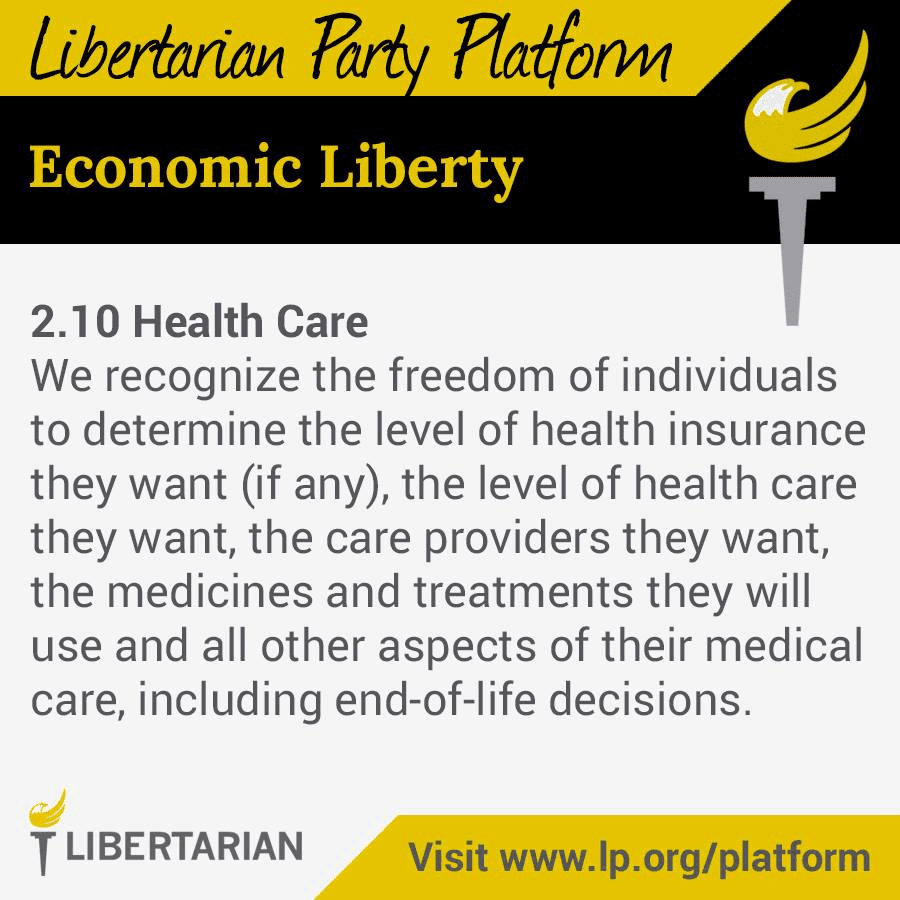Terminally ill patients have finally been granted the “right to try” experimental treatments that may save their lives, thanks to years of hard work by the libertarian-leaning Goldwater Institute at both the state and national levels. After 40 states had already approved similar legislation, the federal Right to Try Act of 2017 was signed into law on May 30.
“Today, we have given new hope to Americans struggling with a terminal illness,” said Goldwater Institute President and CEO Victor Riches. “Federal law now protects the right of dying patients to obtain and use cutting-edge medicines without asking first for government permission.”
The Libertarian Party platform offers clear support for the right of all people to decide which medicines and treatments they will use.
“Why should a patient, especially a terminally ill patient, have to ask for government permission for a medical treatment?” asked Libertarian National Committee Chair Nicholas Sarwark. “The right to live is just that, a right. It’s a travesty that anyone needs government permission to live. This ‘right to try’ bill takes a step in the right direction by permitting access to experimental medicine for terminal patients, but Libertarians would extend that right to all.”
Colorado became the first state to pass “right to try” legislation in 2014, and in only four years, 39 other states have followed suit.
“Patients, doctors, and policymakers nationwide support Right to Try because it gives terminally ill people a ray of hope, an opportunity to explore further options when all others have been exhausted,” said Goldwater Institute Executive Vice President Christina Sandefur after Pennsylvania became the 38th state to pass “right to try” legislation in October 2017. “Protecting people’s right to try to save their own lives is not about partisan politics — it’s about principles and people. We look forward to the day when Right to Try is the law of the land.”
In August, the U.S. Senate passed the Right to Try Act of 2017 unanimously. When President Donald Trump endorsed the bill in this year’s State of the Union address, though, it suddenly became a contentious partisan issue. A group of a few hundred academics and others cosigned a letter to the House of Representatives in opposition to the bill, insisting that the Food and Drug Administration must continue interfering with dying patients who are trying to cling to life. Despite this sudden opposition, the bill still passed by a vote of 250-169, with all Republicans and 22 Democrats voting in favor.
The new law uses a broad definition of “terminally ill,” which provides access to a greater number of patients. It also prevents the FDA from shutting down controlled tests being conducted by pharmaceutical companies because some patients have experienced adverse results from experimental treatments.
“You can be sure that Libertarians support this bill, and would extend its provisions to all patients or their parents or guardians,” Sarwark said. “Protecting people’s right to choose their own medicines and medical care is about as fundamentally libertarian as one can get. That’s just one reason we plan to run a record number of candidates for local, state, and federal office this year.”

